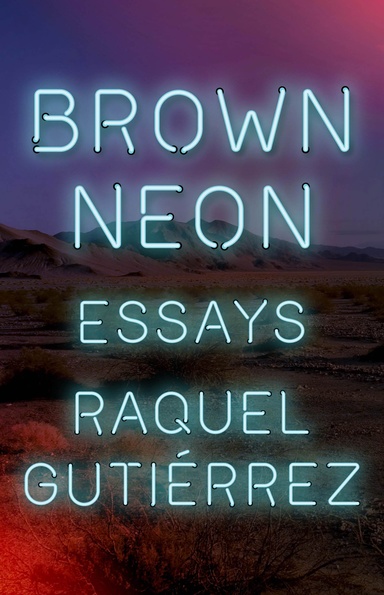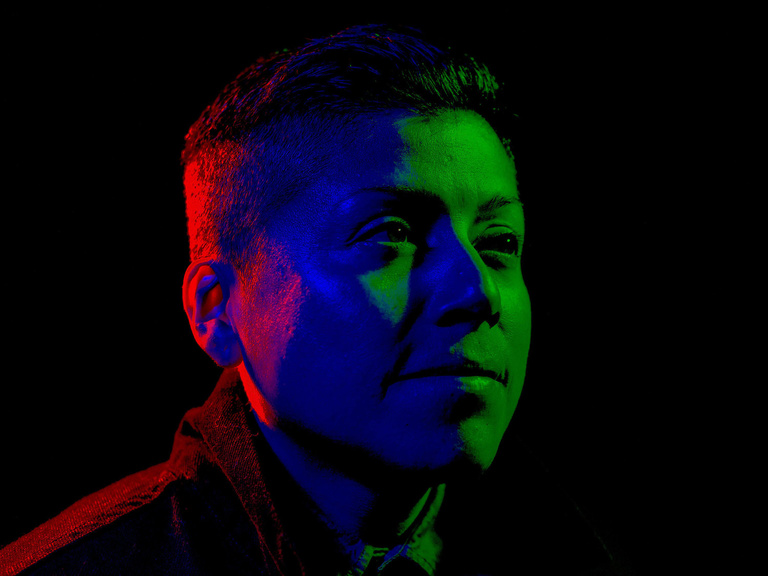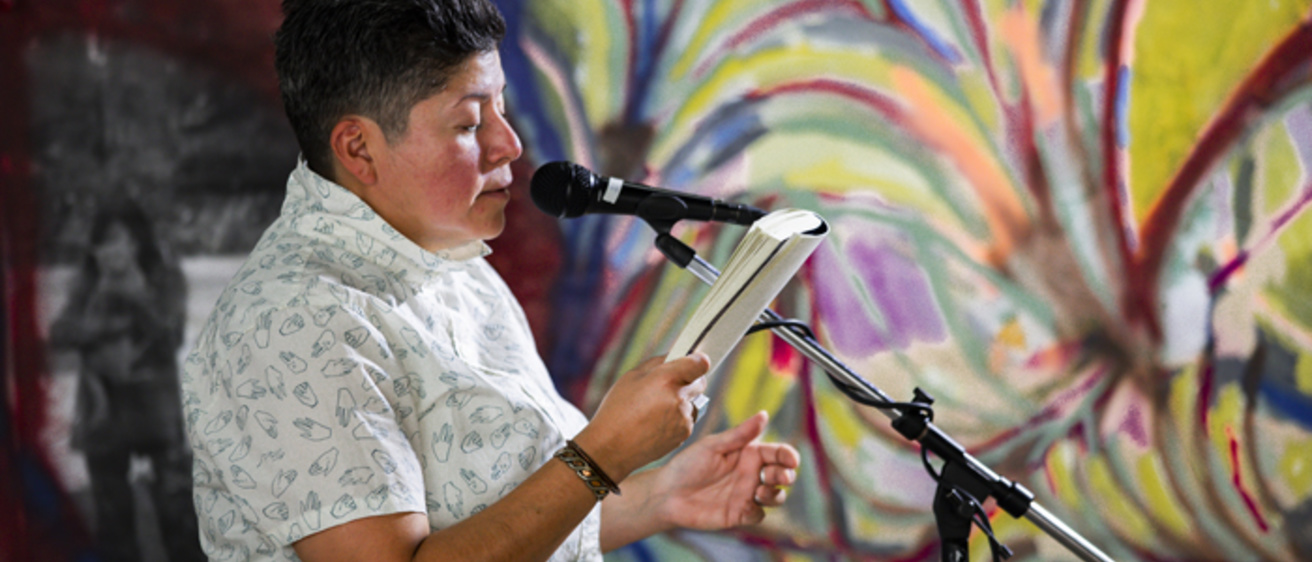Author Raquel Gutiérrez is not a translator in the strictest sense, but much of their writing serves as translation of the cultures to which they belong. “I’m someone who is constantly described with a very distinct set of adjectives--Queer, Latinx, U.S.-born Mexican, Chicana,” says the poet, essayist, and critic continuing to list descriptors that frequently get tied to their name. “My upbringing is a convergence of customs, cultures, languages, dialects, and accents.”
In April 2023, Gutiérrez visited Iowa City as the first recipient of the Center for Translation and Global Literacy’s Residency program. They met with students in the Translation program and performance arts, and gave public talks at Prairie Lights Books, the Iowa City Public Library, and as part of Mission Creek Festival.
Translating butch-ness

Among the work they shared was Brown Neon, a collection of essays that is a 2023 Lammy Literary Award finalist. In the book, which is categorized as memoir, Gutiérrez writes about the language that underpins their experience as the child of El Salvadoran and Mexican parents, as a working class kid from South Los Angeles—a place where one can live happily without “a lick of English”--and as a “professional queer.”
The first essay in the collection, is a translation of the complexity of "butch" as a term and identity. It centers around a birthday party the author hosted for Jeanne Córdova, a defiantly butch activist activist writer, who was dying from cancer. The guests were nearly all women, with the exception of a handsome young trans man who was on his way to graduate school. Córdova is at once proud of this upstart's success and saddened by their choice to transition.
Generationally sandwiched between them, Gutiérrez muses on their place in butch culture “[Córdova] was a dapper butch dandy—someone who fought long and hard to own that identity, only to live out her last days seeing it carted off to the elephant graveyard of queer self-determination. The gender binary was losing its luster as a desirable barometer for queer gender, which meant that butch was falling in and out of fashion, a complicated monolith awaiting its meteor or sanctuary.”
Growing up in Spanish, writing in English

Translating their lived experiences to non-Latinx, non-queer readers is not Gutiérrez’s main intent in writing the essays that appear in Brown Neon. They note that any reader coming across information unfamiliar to them has the responsibility to inform themselves. “As a kid reading Judy Blume, I had to look up bagels and lox,” they say.
Gutiérrez writes in English but grew up in nuanced Spanish. "I pause to choose between the Mexican word for a drinking staw versus the Salvadoran," they note. Despite this relationship to the langue, they've only had one piece of their work translated into Spanish, a poem titled “Orlando” about the Pulse nightclub shooting was translated by Marco Antonio Huerta-Alardín. “I felt so seen so honored to be able to connect with that audience,” they said.
The limits of monolingualism
Gutiérrez lives in Arizona and teaches in the Oregon State University-Cascades Low Residency Creative Writing MFA Program. Most of their students are English-only speakers who are becoming of aware of the drawbacks of their narrow language skills: “I’m witness to a lot of my students experiencing how monolingualism has limited them. They’re trying to break out of those limitations of the imagination.
The care for lineage that Gutiérrez expresses in their essays was also reflected in their visit to Iowa City. Although the author was aware of being a place that has a space place to many people who care about “literary production,” it was their time spent with students from Spanish-speaking cultures that stood out. They appreciate the need to move in order to attain an education, to leave family and cultural safety.
“Students went to a lot of trouble to go to the University of Iowa, to be in the Midwest,” says Gutiérrez. They pause before continuing: “It’s a very strange time in our country in terms of hospitality to people not born here. There is a lot of hostility.”
Goals of the residency program
The goal of the Center Residency program is to bring diverse experiences in translation to students, faculty, and professional translators. As Jennifer Bjornstad, the Center's coordinator, explains, "Just as human narratives do not exist in a vacuum, neither can translators, the curators of these narratives across borders; bringing together various parties in the translation process benefits all."
The 2023-2024 Center Resident will be announced this fall and will be in residency in Spring 2024.
